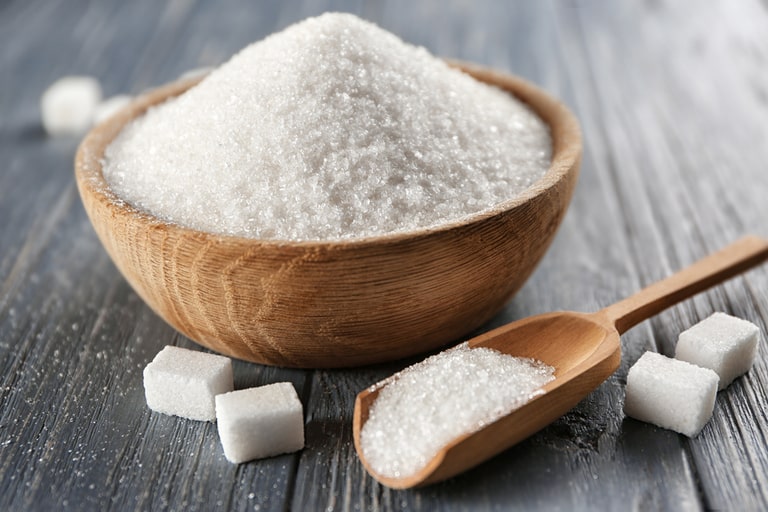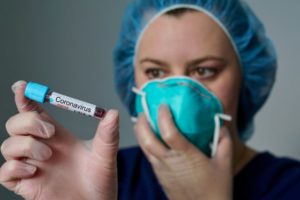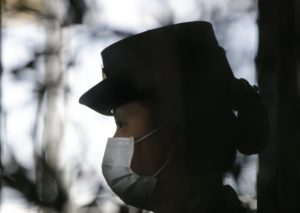By Seth J. Gillihan, University of Pennsylvania
I’ve worked with trauma survivors throughout my career as a therapist, and I don’t think I’ve ever recommended that they change their diet as part of treatment. But my recent discussion with trauma specialist and psychiatrist Dr. James Gordon, author of The Transformation, has made me rethink the role of nutrition in healing from trauma.
The mental health field (myself included) generally has been slow to recognize the role that nutrition can play in mental health. However, recent studies have begun to change commonly held beliefs. For example, research has shown that diet can play a significant role in treating depression (e.g., the SMILES trial and the HELFIMED study). Other studies have found that nutritional supplements can significantly reduce anxiety, depression, and posttraumatic stress symptoms following major traumatic events.
Trauma and Nutrition
Nutrition may be particularly important after a traumatic experience because our bodies have greater nutritional needs as we heal. (See this discussion with Dr. Julia Rucklidge, who has done pioneering research into the effects of nutritional supplements on mental health following trauma.)
Traumatic experiences can also have direct gastrointestinal effects. “We know that trauma does significant damage to every part of our digestive system,” said Dr. Gordon. “For example, it damages the villi—the little projections from the cells that line the small intestine—which absorb the nutrients we need for every cell in our bodies.”
Trauma can lead to a condition known as “leaky gut,” in which “the cells lining the small intestine separate, and through those passageways proteins leak into the bloodstream that don’t belong there,” explained Dr. Gordon. “For example, when the gut becomes ‘leaky’ gluten and milk proteins can go into the bloodstream and cause inflammatory reactions everywhere in the body, including the brain.”
Dr. Gordon also noted that trauma “damages and disrupts the microbiome—the trillions of bacteria in the intestines” that are essential for gut health. The microbiome is an integral part of our immune system and produces many of the neurotransmitters we rely on; post-traumatic changes to the microbiome may account for the greater risk for physical health problems after trauma.
How Trauma Affects Our Food Choices
Dr. Gordon emphasized the powerful effects of food on not only our physical health but our mental and emotional well-being—effects he first noticed on a personal level. “As I started looking at the science that’s come out and what happens when we’re traumatized,” he said, “it all fell into place. When we’re traumatized, we either don’t want to eat anything, or we start eating comfort food: sugary, fatty, salty foods, Big Macs, mac-and-cheese, soda pop, ice cream.”

It makes sense that we’re drawn to those kinds of foods. “They are comfort foods,” said Dr. Gordon, because they increase the levels of certain neurotransmitters in the brain that are tied to a sense of well-being, like serotonin, dopamine, and endorphins. “And they actually suppress traumatic memories to some degree,” he continued.
The problem, as with physical effects of unhealthful foods, is that they wind up being a net negative. “The short-term gain is swiftly eclipsed by the long-term downside,” Dr. Gordon explained. “Serotonin starts to go down, dopamine goes down, endorphins go down—and cortisol [one of the primary stress hormones] goes up, and the memories start returning.”
Feeling poorly and being haunted by traumatic memories can lead to an even greater reliance on unhelpful food choices, and a vicious cycle ensues. “We keep eating more and more of these foods, and it doesn’t work.”
Recommendations
An entire chapter of The Transformation details Dr. Gordon’s comprehensive approach to digestive health when healing from trauma. Specific recommendations include:
- Prioritize healthful foods. “We need to eat a diet that’s going to be less damaging to the gut—more whole foods, organic foods, omega-3 fatty acids (which are in fish),” Dr. Gordon said. He recommended a balanced approach to making dietary changes, “not in a rigid way but in a healthy direction.”
- Limit inflammatory foods. Highly refined foods, processed sugars, and certain food groups have been liked to inflammation, which affects mental health. “I suggest people stop eating foods with gluten and milk protein for a month or two, said Dr. Gordon, “to let the gut heal itself.” Reducing intake of highly processed foods can also be beneficial.
- Take supplementary vitamins and minerals. See this interview with Dr. Julia Rucklidge, which includes details about a supplement that was used successfully to diminish trauma reactions in multiple research studies.
- Replenish healthy gut bacteria. “We need to add probiotics to make up for the disrupted microbiome,” said Dr. Gordon. Probiotics can be taken in supplement form, and are also present in fermented foods like sauerkraut and kombucha.
- Reduce stress. Healthy digestion also comes from engaging the parasympathetic nervous system—aptly called the “rest and digest” system for its role in digestion and relaxation. “We need to use the techniques of stress reduction so we’re not adding more stress to our guts,” said Dr. Gordon. In particular he recommended the Soft Belly breathing practice (see this link for a guided version led by Dr. Gordon).
Seth J. Gillihan, PhD is clinical psychologist; author of The CBT Deck, co-author of A Mindful Year, and host of the Think Act Be podcast. He is also clinical assistant professor of psychology in Psychiatry, University of Pennsylvania Perelman School of Medicine.
References
Gordon, J. S. (2019). The transformation: Discovering wholeness and healing after trauma. New York: HarperOne.
Note: The views expressed in this article are the author/s, and not the position of Intellectual Dose, or iDose (its online publication). This article originally appeared in Psychology Today and has been reprinted with permission.



